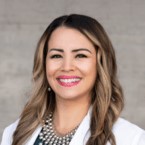
I completed my graduate training in the laboratory of Dr. Carlos A. Casiano at Loma Linda University School of Medicine, where I learned and contributed to: 1) define the specificity of the human autoantibody response to the DFS70/LEDGFp75; and 2) delineate molecular pathways contributing to chemo-resistant prostate cancer. Currently, I am a postdoctoral fellow and trainee under the National Cancer Institute T32 Cancer Metabolism Training Program in the Department of Population Sciences at the City of Hope. Under the initial guidance of Dr. Rick Kittles, I discovered candidate modulators of the insulin-like growth factor (IGF) pathway to target metastatic cellular models of prostate cancer. Subsequently, I joined Dr. Susan Neuhausen’s lab where I am continuing my studies to explore and target these candidate modulators and to determine if there are racial and ethnic differences in levels of these modulators. My goal is to become an independent researcher and to use scientific knowledge to identify gaps in health care delivery to vulnerable populations and improve the outcomes of their treatments. In addition, I am passionate about engaging with communities and training the next generation of cancer scientists.
During my training, I’ve been fortunate to receive guidance from committed and supportive mentors, fueling my career aspirations in cancer research. My desire to serve as a member of the Associate Member Council (AMC) is rooted in my commitment to fostering inclusivity and equity within the cancer research community. My experiences as a Latina scientist bring a diverse perspective to the council, allowing me to contribute insights that reflect the multifaceted nature of the scientific landscape. My vision includes enhancing outreach efforts to ensure inclusivity, advocating for resources to support underrepresented researchers, and developing initiatives that address the unique challenges faced by early-career investigators from diverse backgrounds. I believe in creating a supportive environment where all voices are heard. Through the AMC, I aim to contribute to initiatives that foster a more inclusive, diverse, and supportive community for emerging scientists in cancer research.